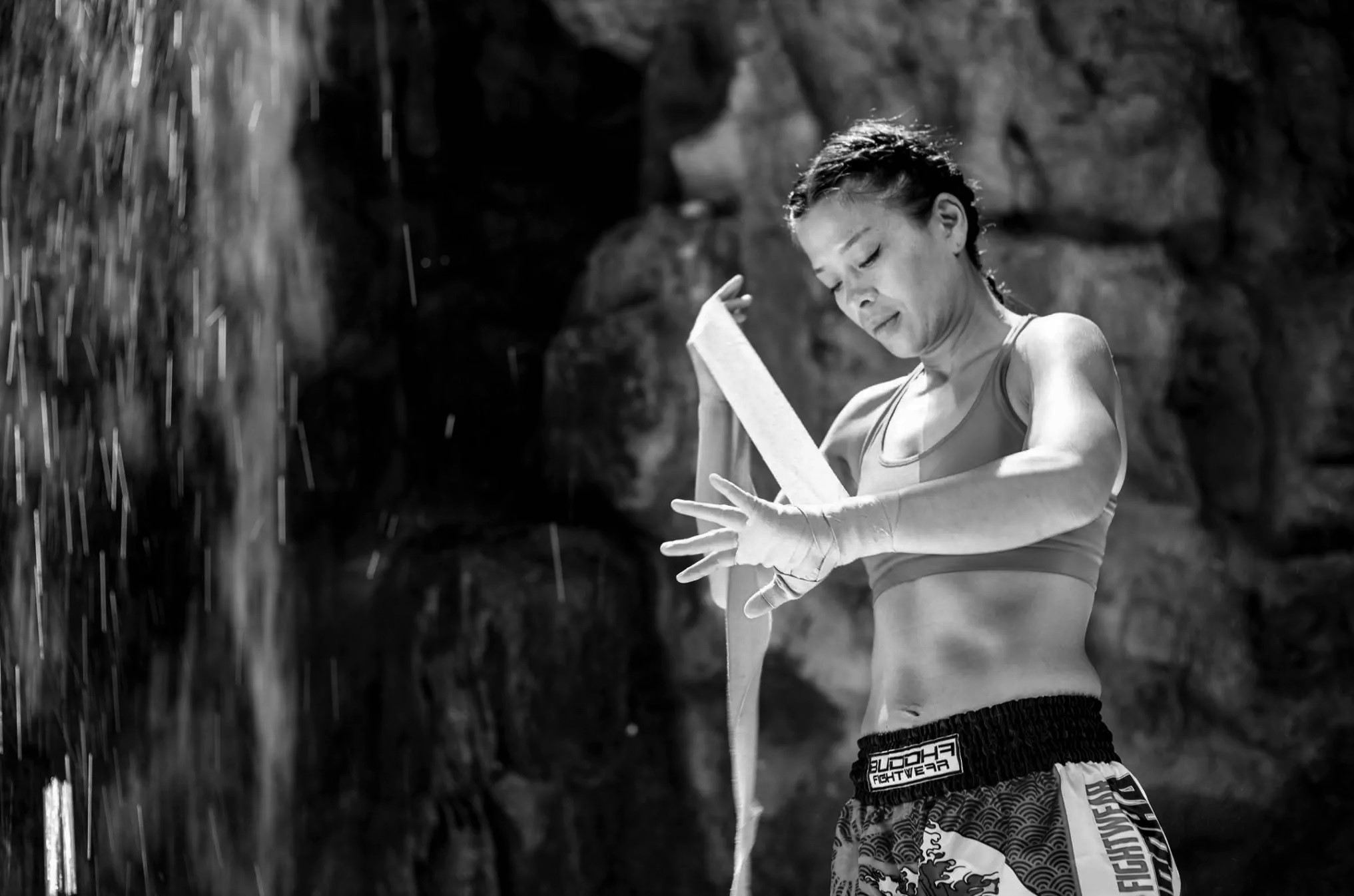TEVI SAY – Coach MMA girls
Tevi Say, being a pioneer of feminine MMA, has accepted to tell us about her journey to the highest level of the Japanese combat leagues. It is a story of passion, relentlessness and courage, and it showed us yet again that the DIY state of mind car flourish in any sort of discipline, sports included. But beyond MMA, Tevi’s story also taught us about the concept of non-mixity in sports training sessions. | By Polka B. | Translated by Alice N. and Julie B. ;
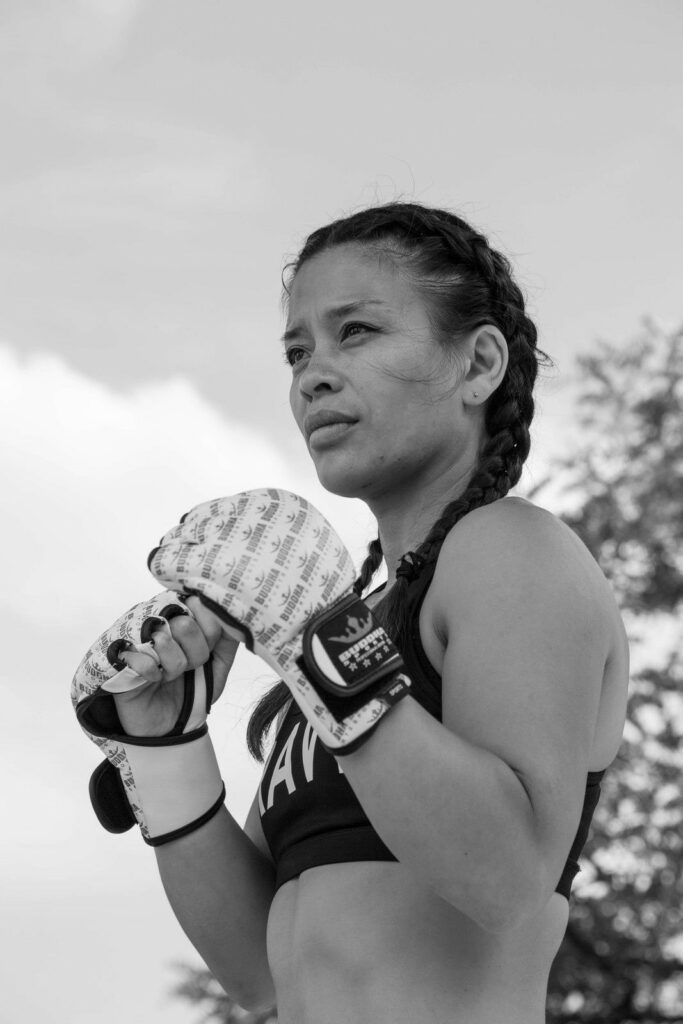
1994. Somewhere in France, a sixteen-year-old high-school girl cooly smokes her cigarette, hidden behind the gymnasium. Meddling with her classmates who play a handball game is not an option. Collective sports is of no interest to her!
This high-school girl is Tevi Say.
The next week, when one of her friends asks her to come with her at a kung-fu course, she accepts, only to make her happy. At the end of the first training, she starts to enjoy it, because of the « dancing » aspect of kung-fu’s specific movements. Without thinking of combat, she starts inventing her very own universe.

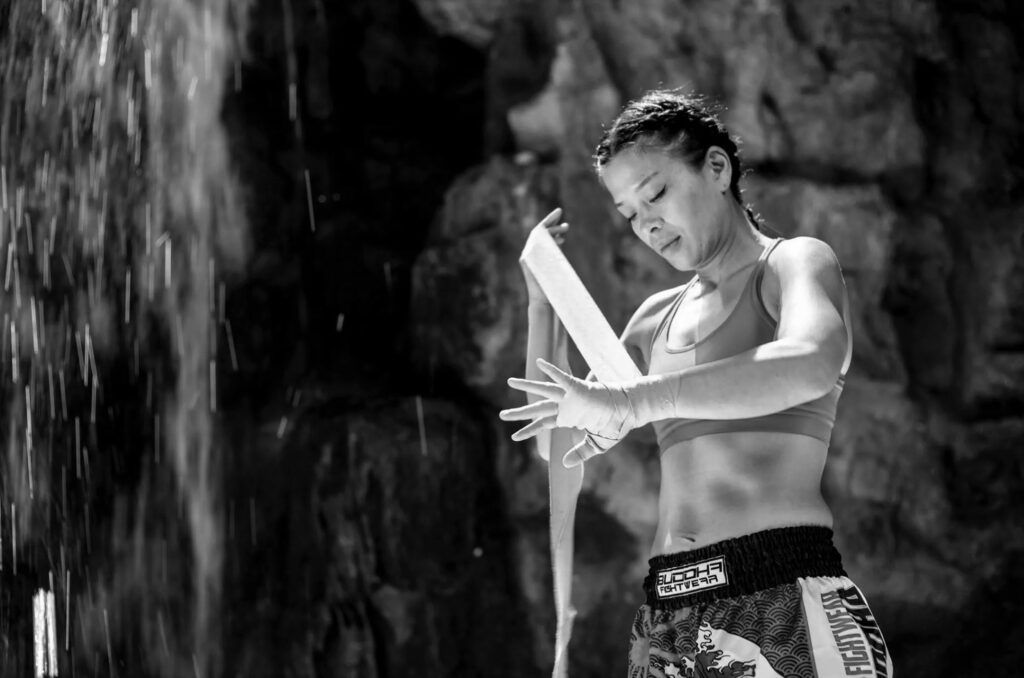
Her break-through happens only a few years later, when she moves to Paris. As she searches for a kung-fu course, she discovers a free-fight section. A whole new world. This exclusively masculine, violent and hyper-testosteroned (illegal) sport doesn’t officially exists in Europe. In the year 1998, 3 confidential sections exist in Paris, and only 5 in France. Before the internet era, the most determined travel the world to learn the techniques.
VHS cassettes are exchanged hand-to-hand, and they unravel the secrets of a professional practice based solely on a raw and simple oppositional fight in the United States (UFC), and on more detailed and precise opposition techniques in Japan (Pride).
This league quickly becomes a reference to Tevi. Considering her frustrations regarding the strict rules of kung-fu, she finds herself very well fitted for the free-fight
« MMA has been like a revelation to me, because it allowed me to express many things that I didn’t even know existed in me. There are rules, just as in any sport, but also a lot of freedom. There is no formatting of style. Your kick can be as you want it to be, as long as it’s efficient.
One day, I did a kung-fu combat, and was disqualified because it wasn’t allowed to give a kick in the face. It was the click. I realised that I felt suppressed by this sport. With MMA, I could do what I wanted. Have my own style. And if I ever lost it, it would be my fault, not the rules’ ! « Free-fight » means something. To me, it meant freedom. »
Her and her fifty kilos managed to impose in this environment, exclusively surrounded by hefty dudes, though technique and an immense strength of character.
« I personally don’t see myself as a « woman » in this world. But materially, you still have to prove yourself more, all the time. Back then, when new fighters arrived at the gym, I had to subdue them on the ring right away. The way they looked at me changed in the minute. Otherwise, I wasn’t respected »

DEPARTURE TO JAPAN
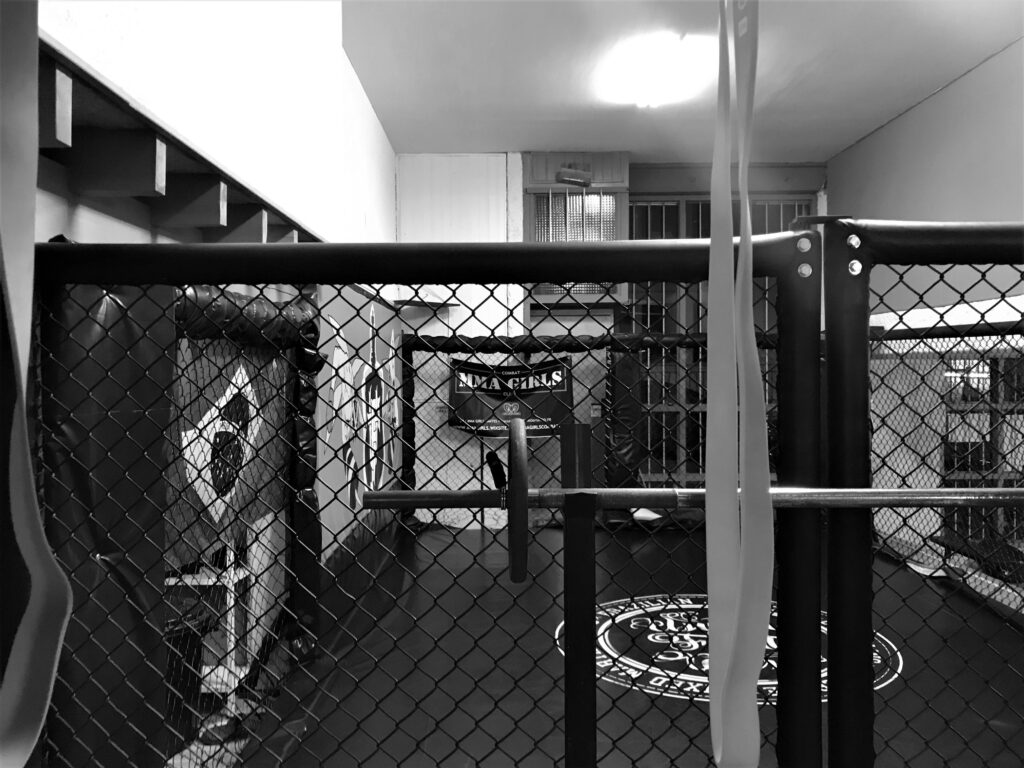
Months go by, and Tevi starts to feel frustrated.
The weight difference is too big, and distorts the oppositions.
It is impossible for her to auto-evaluate her level in a competition, since there are no female fighters in her category in Europe.
One day, she goes to a grappling* (floor combat) competition in Paris. Two Dutch female fighters are here and ready to fight, but the organisation decides to disqualify them right away.
A bitter « Woman, don’t fight » resonates in the gymnasium. Shocked and disarmed, they laugh it off. But this episodes leaves a bitter taste. Tevi doesn’t have a choice. If she wants to fight in order to know her capacities, level, and potential of improvement, she has to leave.
Her objective is to be as close as possible to reality. And her reality is the fight.
During her researches, she find out about a 100% feminine MMA organisation in Japan. The gap is huge. In France, MMA fighters are perceived as « weirdos ». In Japan, the martial arts culture is consequent, and free-fight is highly respected.
At a crossroad in her life, Tevi decides to muster the courage, and she does small job after small job, to be able to leave (as a foreigner, it is impossible to work in Japan, even with a visa). She finally leaves for a three-months test in a local exclusively feminine MMA section.
« I was the first foreigner to come there, and I was welcomed. I was glad, because it is a very closed country, even more back then ! The martial arts are kind of their preserve, so they won’t give their techniques to exterior people.
But I brought in a little freshness in this club. Therefore, they really put me at ease and I felt accepted. When I came back, I worked a lot to be able to go back there for a whole year. I found a cheap accommodation, and managed to eat for very little money. My life in Japan was actually less expensive than my life in Paris. I knew it was temporary. I left for a year to do competitions and to live my passion to the fullest, in a place where I could do so.
MMA was really popular there, and it was an unforgettable experience. But it also was a challenge. I was in the heart of DIY. When I left for Japan, I was alone. It’s your own body fighting against someone else’s. There’s nothing else. You enter the ring, and you manage to get out of it by yourself. Back then, I needed to put myself to the test. I needed to know wether or not I could manage my life alone. Find work. Survive »

BACK TO FRANCE
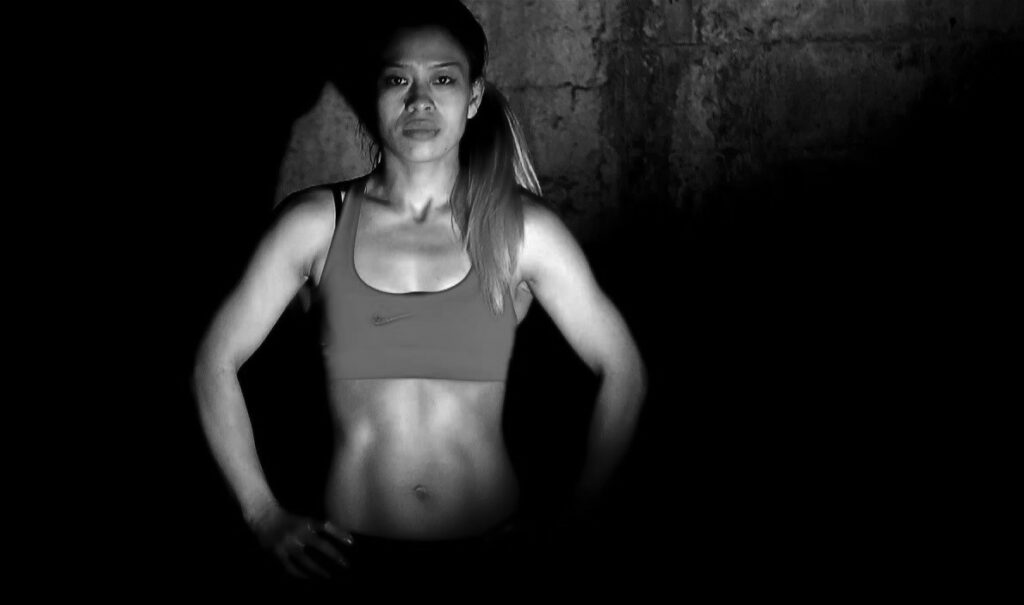
2005. Tevi realized her dream. But when she came back to Paris nothing has changed. MMA is still illegal, bad seen, marginal and practiced by men. Even in the U.S. UFC still not creates a feminine section (it’ll only happen in 2012 with the American fighter Ronda Rousey).
But Tevi doesn’t dream of an institutionalized practice. She wants to be considered as a fighter. Not as a woman. Considering she wins her spurs she begins with a long introspection on herself, until she thinks about a deep questioning.
« I am from Cambodia and my parents fled the war. They were rather comfortably well off, so that we weren’t considered as refugees. From that story I think I keep in me the notion of survival. If something happens I can handle and cope with any eventuality.
Today I have kids. Since they are very little I make them walk a lot because perhaps one day someone will knock at the door and tell us to leave. There and now. I understand quite late this preparation to a potential exile. It’s a part of me. When I assimilated it, I began less focus on myself. I know I can survive. I have nothing left to prove.
In hindsight it’s true my path was atypical. But why was I alone? Why was it so rare? We must have a strong personality to live all this. I consider it’s not fare. For me we don’t necessarily need this kind of temperament to be able to practice a sport, otherwise we block some vocations »
In 2013 Tevi went for it and created her first MMA Girl section within the Platinium club in Paris. This new beginning made her realize how important those classes could be for her. Not so much regarding the influence of a new combat sport in France but rather the practice’s impact within the life of several tens of women
« Most of the girls I’m with are introverted. If a MMA feminine section hadn’t been created they would never have come! Yet there are champions. When they surpass themselves they are very strong. The huge majority didn’t notice this self-confidence at all. As a woman you struggle on so many aspects…
We already “reside” in a men’s place. So do you imagine a MMA room?
Now settled in Nantes she founded a new MMA Girls feminine section in 2018. An independent team situated at the Parabellum Combat Club.

THE IMPORTANCE OF NON-MIXED CLASSES
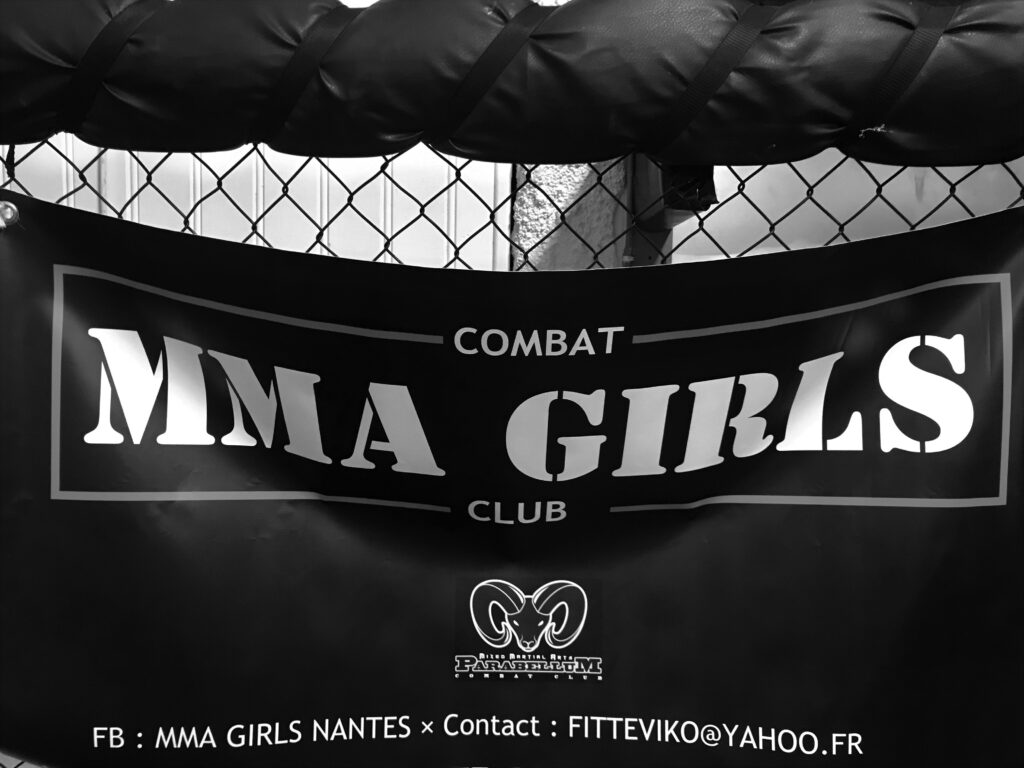
In Nantes Tevi continues to polish her handover’s philosophy. By not seeking to spread it at all costs she likes to work with few pupils.
Caring for all the girls in class whatever their level, she measures the importance of non-mixed MMA classes everyday: :
« It’s important because in a men’s world we tend to reproduce the same pattern within a course. There isn’t often room for another model. Usually men are “nicer” with us for empathy. As if we were weaker.
Some women in my classes already experience a masculine violence in their life. When I yell at them during the session they don’t feel the same. I try to teach the best classes I can and if people like it it’s even better. I don’t care about the fighters’ physique.
We don’t do that to lose weight. All I want is girls being tonic. That they stop to be introverted. That they let go. Between girls, we are not “girls who fight” anymore. We can be ourselves! This is our world… And anyway it’s not a very cozy cocoon since we fight! (Laughs) ! (Rires) »
Before Covid era in 2020, the little family of MMA Girls flew to Japan to do an internship within Tevi’s old club! A way to maintain the bounds still strong with the Japanese room and to perpetuate a certain vision of free-fight outside any masculine indulgence. An adventure which only begins… And when we ask Tevi about her relationship with competitive spirit, we thought it could fit as the last word: :
